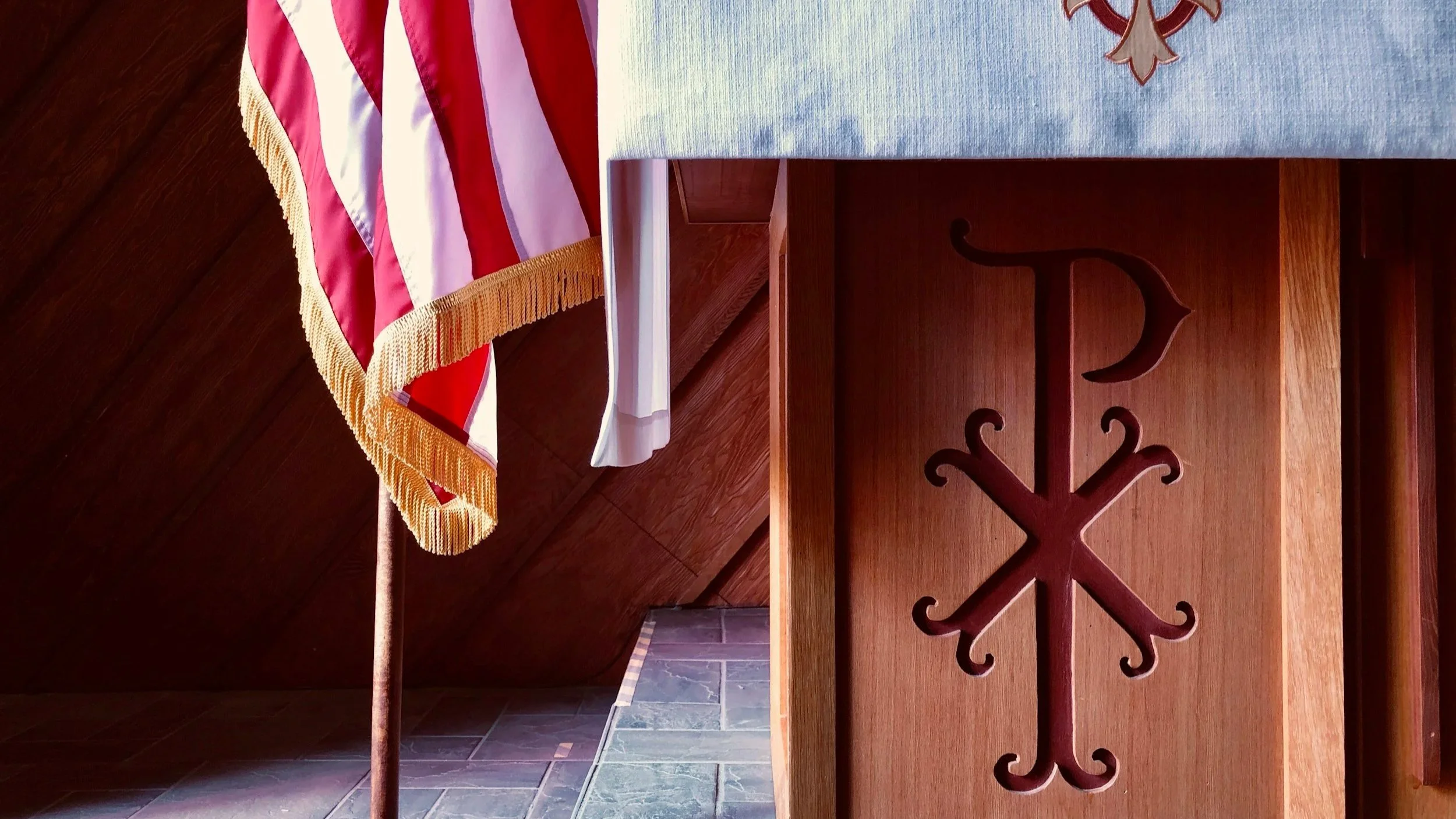Christ or Caesar? A Call to Discernment
In my previous reflection, Grieving in a Culture of Violence, I wrote about the Christian calling to lament and to resist the hardening of our hearts. Today, I invite us to go further. Across the world, and in our own nation, we are being asked—sometimes quietly, sometimes forcefully—where our ultimate allegiance lies. History warns us how often Christians have confused the way of Christ with the way of Caesar. Contemplation calls us back to discernment.
A Personal Word
I do not write as a politician, but as one who treasures history and truth, and who longs for the church to remain faithful to Christ. My perspective is also shaped by my childhood in South Korea, where conflict with the North was part of daily life.
The Korean War (1950–1953) never truly ended. It was paused by an armistice agreement, not a peace treaty, which is why military service is still mandatory for every South Korean man. As a boy in the 1970s and 80s, I lived through regular civil defense and air-defense drills in case of war breaking out again, saw propaganda leaflets fall from balloons, heard stories of spies crossing the border, and knew tunnels were being dug for invasion. The presence of authoritarianism was not distant. It was near, and it shaped us.
Yet I feel a particular sadness when I look at what American children now experience. In the United States, schools practice active shooter drills in preparation for potential mass shootings. For many, this has become normalized. I cannot help but ask, how did we get here? How is it that a society with such resources allows its children to live under this shadow?
War defense drills in my childhood were born of necessity. We could not control the possibility of another war breaking out on the Korean peninsula. But active shooter drills are different. They are the bitter fruit of choices made and systems tolerated. They reveal not an external threat beyond our control, but an internal crisis we have refused to address.
It makes me wonder how quickly we grow accustomed to what should never be normal.
A Clarifying Note
I am not advocating for Democrats or Republicans. My concern is not left or right, but Christ or Caesar. If my words sound political, I ask you to pause and notice whether that impression may come from bias. I am doing the same with mine.
Truth will sometimes appear to favor one side. That is because truth exposes where allegiance to Christ has been compromised. If we automatically assume the other side is always wrong, we have been captured by propaganda and are in danger of cult-like thinking.
I appeal to those who remain willing to listen, think, and admit we may be wrong. Only then can we encounter the truth that sets us free.
Lessons from the Church’s Story
History shows us how often the church has chosen Caesar over Christ.
In the 4th century, when Constantine legalized Christianity, the church gained power but compromised its witness. Many celebrated imperial favor, but others saw the danger. The Desert Fathers and Mothers withdrew to Egypt and Syria, seeking silence, prayer, and radical community as a form of resistance to a church entangled with the empire. They remind us that fidelity to Christ sometimes means rejecting the seduction of power.
Centuries later, missionaries traveled with traders who trafficked enslaved Africans. In blessing and justifying such violence, the church helped to give birth to the transatlantic slave trade. What was offered as “mission” became entangled with exploitation. Caesar’s power once again took precedence over Christ’s call.
In the 20th century, German Christians embraced Hitler, merging nationalism with faith and replacing the cross with the swastika. Bonhoeffer and the Confessing Church resisted, but they were a minority. In the United States, many white churches remained silent during Jim Crow, prioritizing “law and order” over justice. As Dr. King warned in his Letter from Birmingham Jail, such silence is never neutral.
When the church aligns with the empire, it loses its prophetic voice.
Lessons from the Korean Peninsula
After World War II, Korea was divided. Kim Il-sung built a regime in the North that demanded absolute allegiance:
Speech and media tightly controlled, with dissent silenced.
Propaganda and education reshaping history to glorify the Kim family.
Militarization used not only for defense but to control society.
Fear and surveillance that encouraged citizens to report on neighbors.
Cult of personality treating leaders as divine, beyond question.
This is what happens when allegiance to Caesar is demanded without limit. Truth is suffocated, fear becomes the air people breathe, and dissent disappears.
A Mirror for Today
While no nation is identical to North Korea, seeds of authoritarianism sprout whenever leaders:
Undermine or silence the press.
Rewrite history to serve ideology.
Cultivate loyalty to personality rather than principle.
Encourage neighbors to view one another with suspicion.
Treat chaos, intimidation, or falsehood as acceptable means to maintain power.
Whenever these patterns are normalized, Caesar gains ground. And normalization itself is dangerous. We see it in authoritarian movements. We see it in schools where children practice active shooter drills. We see it in churches that excuse silence in the face of injustice. The tragedy is not only in the crisis itself, but in how we learn to accept what should never be accepted.
The Way of Christ
How different is the way of Jesus.
“You will know the truth, and the truth will set you free” (John 8:32). He never bent truth for self-interest.
“The rulers of the Gentiles lord it over them… Not so with you” (Matthew 20:25–26). True greatness is servanthood.
“Put your sword back in its place” (Matthew 26:52). His kingdom does not advance by coercion.
He stood with the marginalized, embodying mercy and justice instead of fear (Luke 4:18–19, Matthew 9:10–13).
He rejected Satan’s offer of worldly kingdoms (Matthew 4:8–10), choosing the cross over the throne.
To follow Christ is to refuse Caesar’s way, in whatever form it takes.
An Invitation to Clarity
We stand at a moment of testing. Some Christians are again confusing political power with the kingdom of God. Others embrace intimidation and chaos. We must remember: to stand with Christ is not to stand with Caesar, whether left or right.
To stand with Christ is to walk the costly path of truth, mercy, and justice. It is to reject propaganda for truth, fear for love, and false messiahs for the true Messiah.
Bonhoeffer once wrote, “The church is only the church when it exists for others.” We are not here to serve the empire or secure our comfort. We are here to embody Christ, who gave himself for the world.
The question is not left or right. It is Christ or Caesar, the cross or the sword, truth or propaganda.
May we be found standing with Christ.
Reflection Questions for Prayer and Discernment
Where do I notice in myself the temptation to give allegiance to Caesar—whether in the form of political power, comfort, or cultural approval—rather than to Christ?
What in my life or community has become “normalized” that should never be normal in the way of Christ?
How do the examples of the Desert Fathers and Mothers, Bonhoeffer, or Dr. King invite me to resist the seduction of power in my own context?
In what ways am I being called to embody the truth, mercy, and justice of Christ, even when it is costly?
How might God be inviting me to practice discernment, silence, and prayer as a way of clarifying where my allegiance lies?

